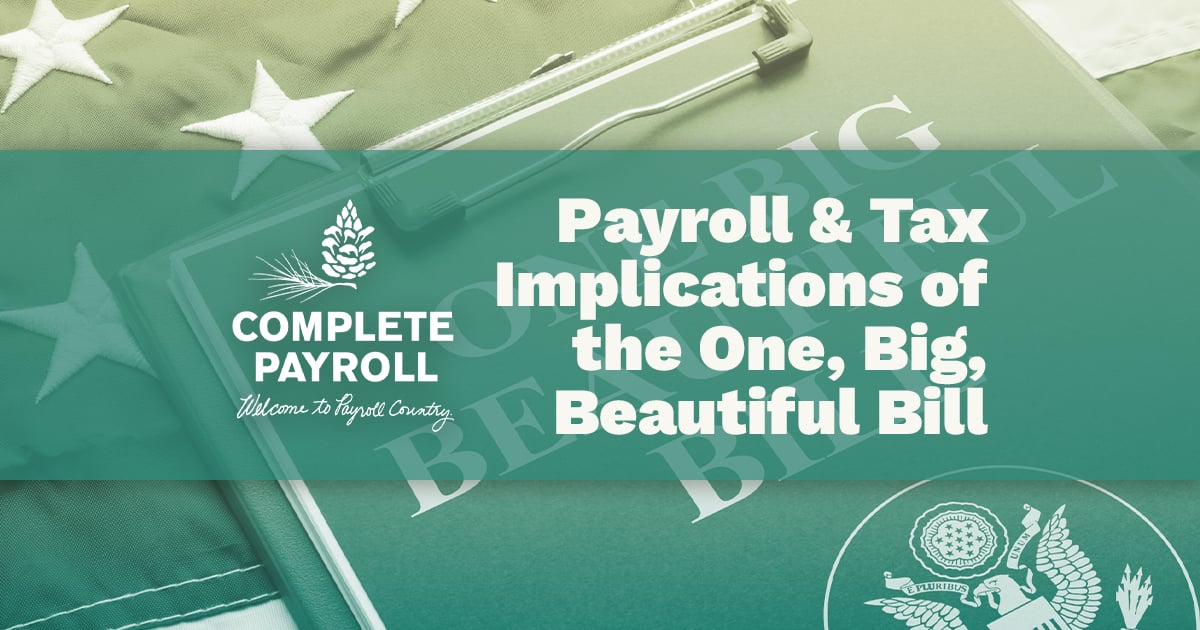
This article is a guest contribution from Grace Ferguson. Grace is a feature writer who specializes in the payroll, HR and finance industry. Prior to becoming a feature writer, Grace spent 10 years as an HR and Payroll Administrator. You can find the original article here.
So it’s done. After approximately 30 years of dormancy, the U.S. tax code has been amended by the U.S. Congress and signed into law by President Donald Trump. The new law, known as the “Tax Cuts and Jobs Act,” contains sweeping changes and will take effect on Jan. 1, 2018. Here’s an overview of what it means for employers.
Corporate Tax
The federal government imposes corporate income tax on the profits of U.S. corporations (specifically, C corporations). This means that the corporation’s profits are taxed at the entity level — unlike pass-through entities, such as S corporations, which are taxed based on the owner’s individual rate.
The act lowers the minimum corporate tax rate from 35 percent to 21 percent, indefinitely.
Pass-Through Entities
Most businesses in the U.S. are taxed according to the owner’s individual tax rate, rather than at the corporate level. Under the tax reform bill, these businesses, also called “pass-through” entities—which include sole proprietorships, limited liability companies, S corporations, and partnerships—may be able to deduct up to 20 percent of income on their return. This credit is scheduled to end after 2025.
Foreign Earnings
Corporations that do business overseas will no longer be taxed on profits generated from abroad.
Nonprofits
Nonprofit employers will be required to pay an excise tax of 21 percent on annual compensation exceeding $1 million paid to a “covered employee.” Note that there are quite a few intricacies affecting this new rule, including exclusion of payments made to certain professionals and what constitutes a “covered employee.”
Food and Beverage Perks
If you provide food and beverage to your employees through a qualified eating facility, you can deduct 50 percent of those costs. After 2025, you will not be able to take this deduction.
Employee Achievement Awards
Employers were allowed to deduct up to a certain amount for an employee achievement award that is “tangible personal property.” The tax reform bill maintains this deduction, while defining tangible personal property to exclude specific items, such as cash, gift cards, cash equivalents, vacations, meals, lodging, tickets to sporting events, and other similar items.
Entertainment Expenses
Employers will not be permitted to deduct for activities associated with entertainment, recreation, or amusement; or for club membership dues arranged for business, recreation, pleasure, or other social purposes.
Transportation Expenses
Under the act, employers cannot deduct for expenses associated with providing qualified transportation benefits to employees or for expenses incurred as a result of providing employees with transportation for commuting between the employee’s residence and the employer’s place of business. An exception applies if providing the transportation is necessary to ensuring the employee’s safety.
Paid Family or Medical Leave
In 2018 and 2019, eligible employers will be able to claim a credit equal to 12.5 percent of wages paid to a qualifying employee on leave under the Family and Medical Leave Act (FMLA) if the rate of payment is no less than 50 percent of the employee’s regular earnings. The credit goes up by 0.25 percent (capping at 25 percent) for every percentage point by which the payment exceeds 50 percent.
Moving Expenses
The tax bill suspends the business deduction for qualified employer-paid moving expenses for tax years 2018 through 2025.
Sexual Harassment or Sexual Abuse Settlements That Include an NDA
Employers will no longer be allowed to deduct for sexual harassment or sexual abuse settlements or related attorney fees if a nondisclosure agreement (NDA) is attached to those payments.
Employer-Provided Gym Facilities
Employer funds used to pay for onsite gym facilities are now treated as unrelated business taxable income, effectively repealing the deduction for onsite employer gyms.
Keep in mind that the tax bill is a comprehensive piece of legislation that entails many nuances affecting each of the areas noted above. Therefore, it’s essential that you consult with your financial advisor to evaluate the impact of the bill on your business.
This article is a guest contribution from Grace Ferguson. Grace is a feature writer who specializes in the payroll, HR and finance industry. Prior to becoming a feature writer, Grace spent 10 years as an HR and Payroll Administrator. You can find the original article here.
















 Get Instant Blog Notifications
Get Instant Blog Notifications


